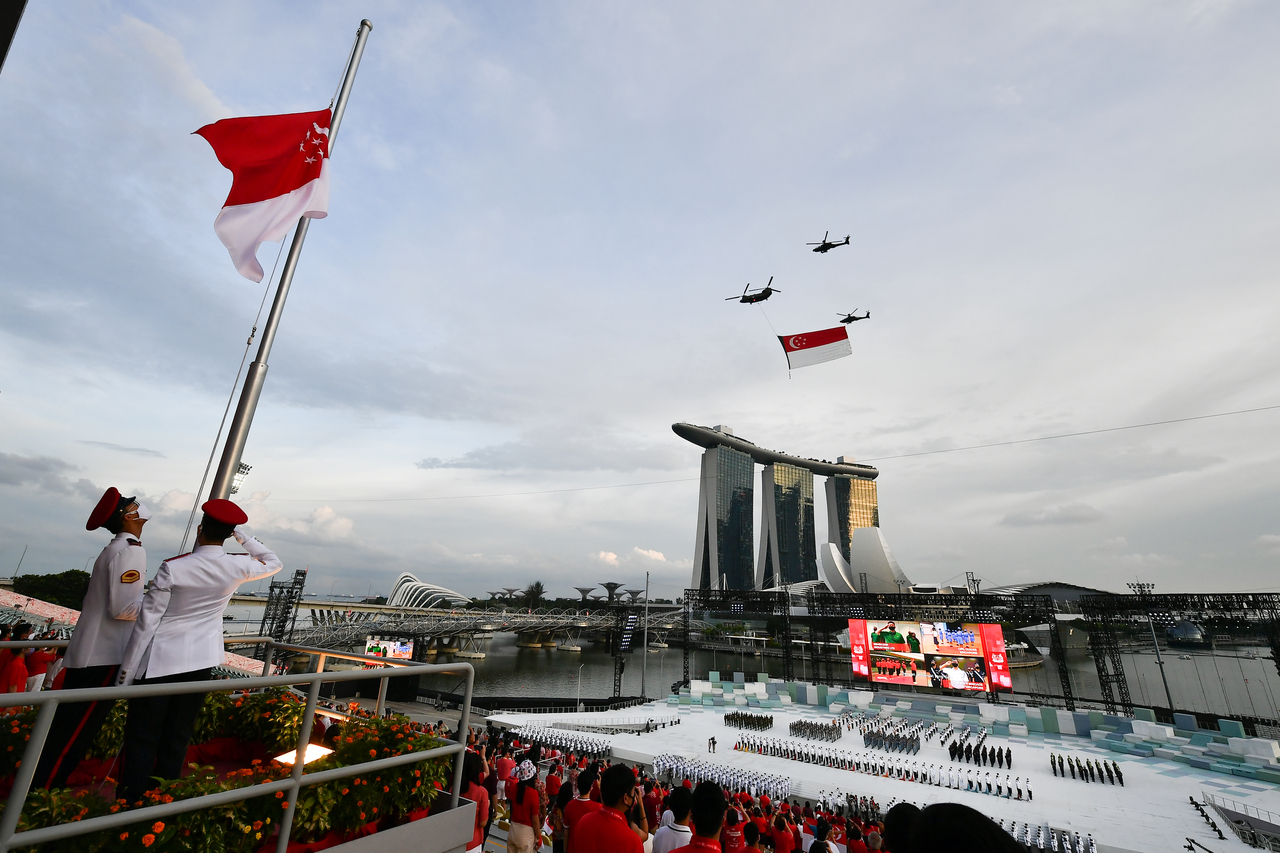S'poreans identify strongly with both national and racial identities: IPS study
Sign up now: Get ST's newsletters delivered to your inbox

Overall, 96 per cent of respondents indicated that Singapore was important or very important to their sense of identity.
ST PHOTO: LIM YAOHUI
SINGAPORE - Singaporeans from all ethnic groups feel strongly about their national and racial identities, an Institute of Policy Studies (IPS) study on national identity and pride found, indicating a healthy level of integration.
Overall, 96 per cent of respondents indicated that Singapore was important or very important to their sense of identity, while 87 per cent of respondents indicated the same about their race.
Those from the minority ethnic groups, though, showed a stronger sense of dual identity, with higher levels of importance accorded to both racial and national identity.
IPS principal research fellow and head of Social Lab Mathew Mathews said this shows that minorities in Singapore have not become so assimilated that "society has stripped us of our identity", but at the same time, "we feel strongly and identify with the nation".
In recent months, several incidents of racism had sparked concern about the state of racial harmony in Singapore, and Prime Minister Lee Hsien Loong said during the National Day Rally in August that issues about race had to be managed carefully.
The study found that perceptions about multiracialism and racial equality differed between the different ethnic groups.
About 70 per cent of respondents believe that "Singapore's approach to multiracialism works well", over the 30 per cent who said "Singapore's approach to multiracialism raises issues we need to work on".
However, younger respondents and Malay respondents were more likely to believe that there was room for improvement.
Specifically, 52 per cent of all Malay respondents believed that the current approach to multiracialism raises issues that need work, compared with only 25 per cent of all Chinese respondents and 37 per cent of all Indian respondents.
At the same time, 35 per cent of those aged 21 to 34 were more likely to share the same belief, compared with 29 per cent of those 65 and above.
Malay respondents were also less proud of racial equality in Singapore, with 52 per cent of them saying they were proud or very proud, compared with 71 per cent of Chinese and 66 per cent of Indian respondents.
Meanwhile, cultural dominance was also an issue perceived differently by the different ethnic groups.
Asked to choose between the option "Singapore is not dominated by any single culture" and "Singapore is largely dominated by Chinese culture", 64 per cent of respondents chose the first statement.
However, 55 per cent of Malay respondents believed Chinese culture was dominant, compared with only 32 per cent of Chinese respondents and 38 per cent of Indian respondents.
On what these discrepancies show, the study's authors said: "Recognising the concerns of different segments of the population is crucial since they do not necessarily always have similar aspirations and life experiences.
"This is clearly illustrated when we examine results in the survey related to multiracialism. While the overall population figures tend to show high levels of support, when we examine the views of some minority community, it is apparent that there might be some discontent."


